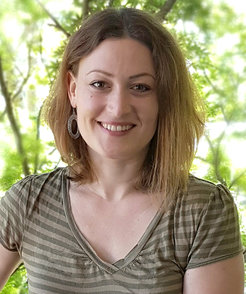European Research Council honors Valérie Hilgers
ERC Starting Grant to investigate how specialized RNA processes influence the development and function of neurons
Neurons are highly specialized and complex cells that are responsible for transmitting information along the communication pathways of our nervous system. In humans, hundreds of billions of neurons enable the transmission of signals from sensory organs to the brain and from the brain to organs, glands or muscles.

To ensure the reliability and speed of these important processes in neurons, an exact and robust orchestration of gene expression is essential. Such orchestration relies heavily on co-transcriptional and post-transcriptional gene regulation. These processes take place between the beginning of transcription, in which a particular segment of DNA is transcribed into messenger RNA (mRNA), and the translation of the mRNA into specific proteins. For example, alternative mRNA processing can elicit either a change that results in the expression of entirely different proteins, or a change in the gene expression by modifying particular non-coding regions of the mRNA.
Although relatively little is known about how these mechanisms control neuronal development and function, the importance of RNA-directed regulation in the brain is exemplified by its implication in neurological diseases. For example, in certain forms of epilepsy, neurodegeneration and autism, the pathogenic dysregulation of genes in the brain is causally associated with aberrant RNA processing.
Valérie Hilgers and her research group at the Max Planck Institute of Immunobiology and Epigenetics in Freiburg investigate how these RNA processing events influence the development and function of neurons. The team is particularly interested in a specific part of the mRNA, that follows the actual protein coding region: the so-called 3’ untranslated region (3’UTR). Some specific mRNAs, that encode developmental regulatory proteins, have extremely long 3’UTRs exclusively in neurons.
To explore the functions of these particular mRNA regions in neurons, Valérie Hilgers was honored with one of the prestigious Starting Grants of the European Research Council (ERC). The awarded research project “Mechanism and functional impact of ultra-long 3’UTRs in the Drosophila nervous system” uses the genetic and experimental tractability of the model organism Drosophila melanogaster and aims to develop an understanding of the synthesis mechanisms and functional effects of 3’ UTRs in neurons, with the long-term goal of contributing to a better knowledge of neurological diseases in humans.
ERC Starting Grants
ERC Starting Grants are awarded annually to Europe’s top researchers to carry out their research at an institution in Europe. The funding is provided by the European Research Council (ERC) to excellent young scientists of all nationalities who have gained between two and seven years scientific experience after receiving their Ph.D. In the call for 2018, the ERC received 3170 proposals of which 403 were funded. The selected researcher will each receive up to 1.5 million euros for their projects.
The ERC Grant for Valérie Hilgers in 2018, again acknowledges the status of the MPI-IE in Freiburg as a location for top-level research in Europe. It is the ninth ERC award for scientists of the institute after five ERC Starting Grants for Robert Schneider (2007), Andrew Pospisilik (2011), Patrick Heun (2012), Tim Lämmermann (2016) and Nina Cabezas-Wallscheid (2017), an ERC Consolidator Grant for Andrew Pospisilik (2015) and two ERC Advanced Grants for Thomas Boehm and Michael Reth (2012).
CV
Valérie Hilgers, born 1982, studied Biology at the Saarland University in Saarbrücken, Germany and at the Ecole Normale Supérieure, Paris, France. She earned her PhD at EMBL Heidelberg, Germany and the Temasek Life Sciences Institute, Singapore. From 2010 to 2016 Valérie Hilgers was Postdoctoral fellow at University of California, Berkeley, USA in the Department of Molecular and Cell Biology. Since 2016, Valérie Hilgers is Group Leader of a Max Planck Research Group at Max Planck Institute of Immunobiology and Epigenetics in Freiburg, Germany.
